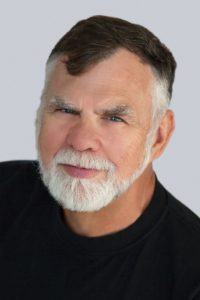Stephen Hurst is the Board Director of MindMed, a psychedelic pharmaceutical company that he co-founded in May 2019 with JR Rahn. Hurst served as co-CEO of MindMed until he retired from the position in January 2021. In a Milken Insitute Review piece by Larry Fisher, Hurst stated, “We are looking at everything from medically supervised hallucinogenic experiences to non-hallucinogenic analogs and micro-dosing at sub-hallucinogenic levels. It’s a brave new world, but not the one that [Aldous] Huxley was talking about.”
Hurst earned his Juris Doctor from Golden Gate University School of Law in 1984 and his Bachelors in Environmental Science and Radiobiology from UC Berkeley in 1978. In Hurst’s more than 30 years of experience in the biopharmaceutical industry, he has supported a variety of projects tackling pressing healthcare challenges including addiction, immune monitoring, pneumococcal vaccine development and access, and multi-drug-resistant cancer.
Hurst began his corporate executive career in 1994, working at Sequential, Inc., Inhale Therapeutic Systems (now Nektar Therapeutics), and later the Immune Tolerance Institute. From 2005 to 2009, he served as a consultant to The World Bank and BIO Ventures for Global Health. In 2009, Hurst co-founded Savant HWP and served as CEO from 2011 until 2019. Hurst also joined StartUpNV, a business incubator and accelerator in 2018, and became Director the following year.
At Savant, Hurst oversaw the development and testing of a breakthrough opioid addiction pharmaceutical and ibogaine derivative called 18-methoxycoronaridine, or 18-MC. A March 2021 Psychedelic Science Review article describes this lesser-known, non-hallucinogenic compound and its therapeutic promise. In September 2019, just five months after its founding by Rahn and Hurst, MindMed acquired the project from Savant. The phase 1 clinical study of 18-MC was completed in the summer of 2020. In an interview with The Bio Report podcast, Hurst stated, “18-MC actually addresses this dysregulation of dopamine in the reward centers of the brain. And what we believe is happening is that [18-MC] is essentially resetting parts of the reward pleasure center of the brain so that there is a natural upregulation of dopamine release, restoring essentially normal baseline levels of dopamine and alleviating the biggest problem in addiction, which is cues that induce craving…”
- Numerous pioneering MindMed initiatives have transpired under Hurst’s leadership. The company helped sponsor research into the dosing effects of LSD.1 The study, later covered by Psychedelic Science Review, was conducted by Liechti lab in Switzerland, which is led by Dr. Matthias Liechti. After the study, the lab entered into a research and licensing agreement with MindMed. Since then, Liechti lab has carried out several studies in partnership with MindMed, including investigations into:
- The combined effects of MDMA and LSD
- Technology that can halt an LSD trip
- Intravenously administered DMT
- A comparison of altered states induced by psilocybin and LSD
- Potential treatment of adult ADHD with LSD microdoses. Phase 2 clinical trials are set to begin in the latter half of 2021.
